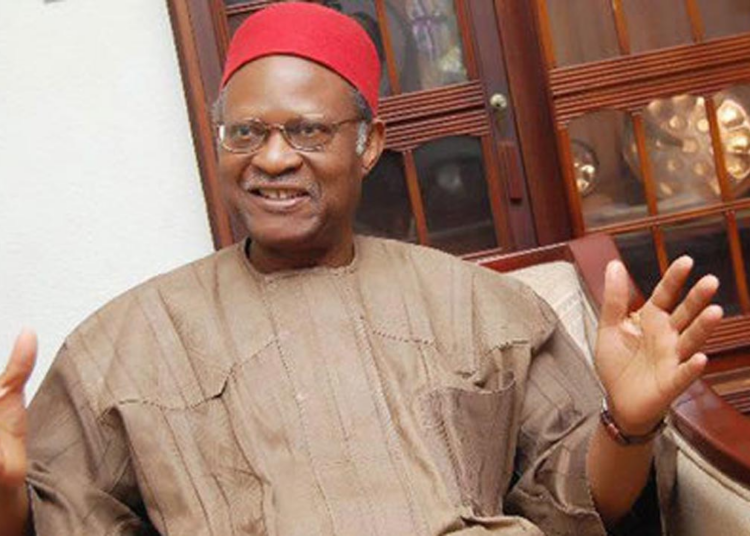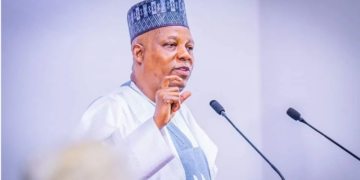Former Commonwealth Secretary General, Chief Emeka Anyaoku, has warned the Federal Government to be conscious of the coup d’etat in its northern neighbor, the Republic of Niger, saying that the elements involved in destabilization of Niger are not far from Nigeria.
The former Nigerian Minister of External Affairs, who condemned the coup, said this in an interview with reporters during the 5th Annual Lecture/Conference of the Association of Foreign Relations Professionals of Nigeria (AFRPN), themed ‘Examining the Nexus between Foreign Policy Goals and Democratic Governance’ which held in Abuja on Thursday.
Anyaoku, who expressed surprise at the coup, said “Well what had happened in Niger should be of major concern to us here in Nigeria, on a number of grounds. The first is that we thought that we have seen the end of military coup d’etat, and end of unconstitutional change of government in West Africa”.
According to him, “We should also work towards putting Niger Republic back to a constitutional form of government. Niger is one of our neighbours, so what happens there is bound to affect the security and stability in our own country. The elements involved in the destabilization of Niger are not far from Nigeria. So, we should be very conscience”.
Earlier in his welcome address the President of AFRPN, Gani Lawal, said that following the democratic trajectory and rapid advancement of globalization, the Nigerian government cannot afford to neglect the training of the “relations of production” at our national frontiers.
According to him, “Our association will extend hands of fellowship to other departments that handle governmental activities across the frontiers of the nation particularly some that are domiciled in our missions abroad to partake in our practical diplomatic nuances and protocol training programs which are essential in dealing with members of the public both at home and abroad for synergy, cooperation, e-spirit de corps and outstanding deliverables.
“We know for a fact that there already exists sufficient documentation in foreign policy crafting and practice, the recent expert codification of our foreign policy thrusts is a testimony to this fact. What is missing now is the strategy of implementation in a rapidly changing global environment.
“We in the AFRPN recognize that the process of implementing foreign policy requires people, technology and clear understanding of context and environment, we therefore submit that training in all ramifications, is an essential ingredient in the implementation of our foreign policy, economic development and governance”.
We’ve got the edge. Get real-time reports, breaking scoops, and exclusive angles delivered straight to your phone. Don’t settle for stale news. Join LEADERSHIP NEWS on WhatsApp for 24/7 updates →
Join Our WhatsApp Channel










